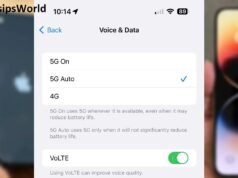- Chrome Password Manager The market is flooded with Chrome password managers. You can locate the ideal one for your needs with the aid of this article. You can store passwords and log into websites with the Chrome Password Manager browser plugin. You can keep your credit card details on it as well!
- Care Phishing Sites Websites that pose as legitimate sources but are actually fake are known as phishing sites. They are employed to steal your personal data and profit from it. By being cautious about the websites you visit and the information you enter on them, you can protect yourself.
- Manage Your Cookies In Chrome, cookies can be controlled.
You need to do this by turning on cookie control in your browser. Follow these steps to accomplish this: Scroll down until you find the option titled “Manage how Google uses data from this website” under Settings > Privacy. At the bottom of this screen, under “Advanced tools,” click the “Content settings” button (you may have to click twice).
The removal of cookies can be done either manually or automatically. Because it enables customers who do not want any activity linked to their browsing history or cache to be removed from their hard drive as well as from other connected devices such as mobile phones or tablets/PCs while utilizing cloud services, manual deletion is advised. 4. Use A Secure VPN Your IP address, which is a special number given to your device by an internet service provider (ISP), can be masked with the aid of a VPN. You can use this to browse the internet anonymously from the eyes of advertising, data mining firms, and even hackers. You can get around geo-restrictions like content filtering and censorship at work or school by using a VPN connection. Just install and enable VPN Chrome extension to get the task done. The use of malicious software on an unsecured Wi-Fi connection could result in identity theft and other serious problems, so you can use it to protect yourself from hackers as well! 5. Browse Privately And With Incognito Mode An anonymous browsing mode called incognito keeps your browsing history and other information private. It doesn’t save the history of websites visited record cookies or use trackers. Although incognito mode may not be completely safe, it does assist to protect your information when using public computers in places like hotel lobbies or airport lounges. 6. Chrome Products Have Multiple Inbuilt features that would help you keep your information secure Chrome products can help you safeguard your data.
Every version of Google Chrome includes a built-in password manager that will let you save your passwords so you won’t have to remember them. This feature can also be used to generate secure passwords for websites or fill out online forms. Fraudulent Websites: If a website appears suspicious, close it right away. Additionally, this will assist in preventing any type of hacking or fraudulent activity on the website you are visiting! Manage to visit: Users can decide how much data they want to be saved on their computer while visiting specific websites by managing cookies (i.e., Facebook). This means that if someone uses this feature to track down someone else, they won’t be able to locate anything at all helpful! Additionally, there is a function called “clear browsing data” that aids in erasing all traces left behind after viewing particular websites (so that nothing would be left behind after closure).
Conclusion The ways in which you can use Chrome goods while preventing information theft have been covered in this post. Additionally, we have included some advice on password management and avoiding internet phishing scams.
Δ



